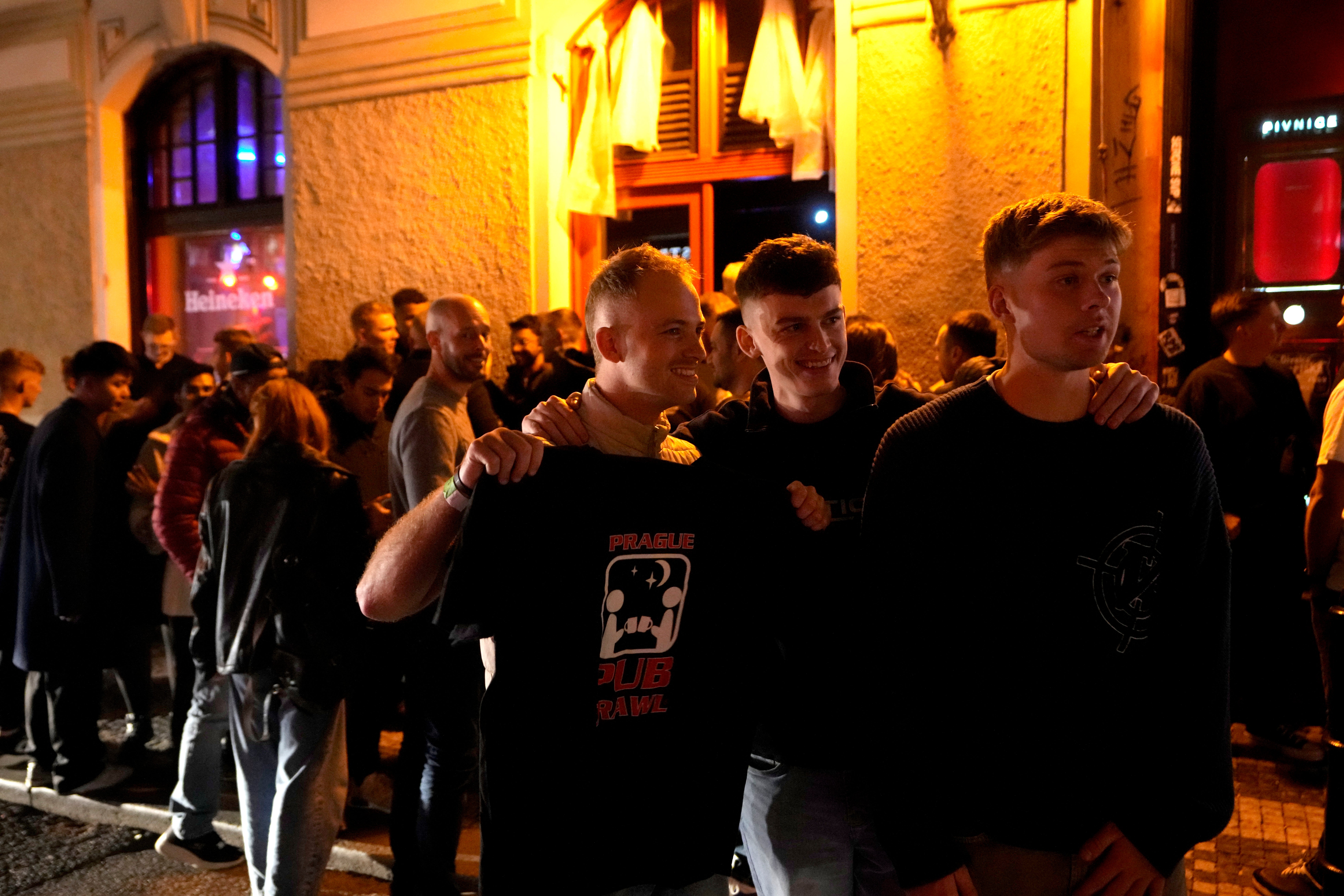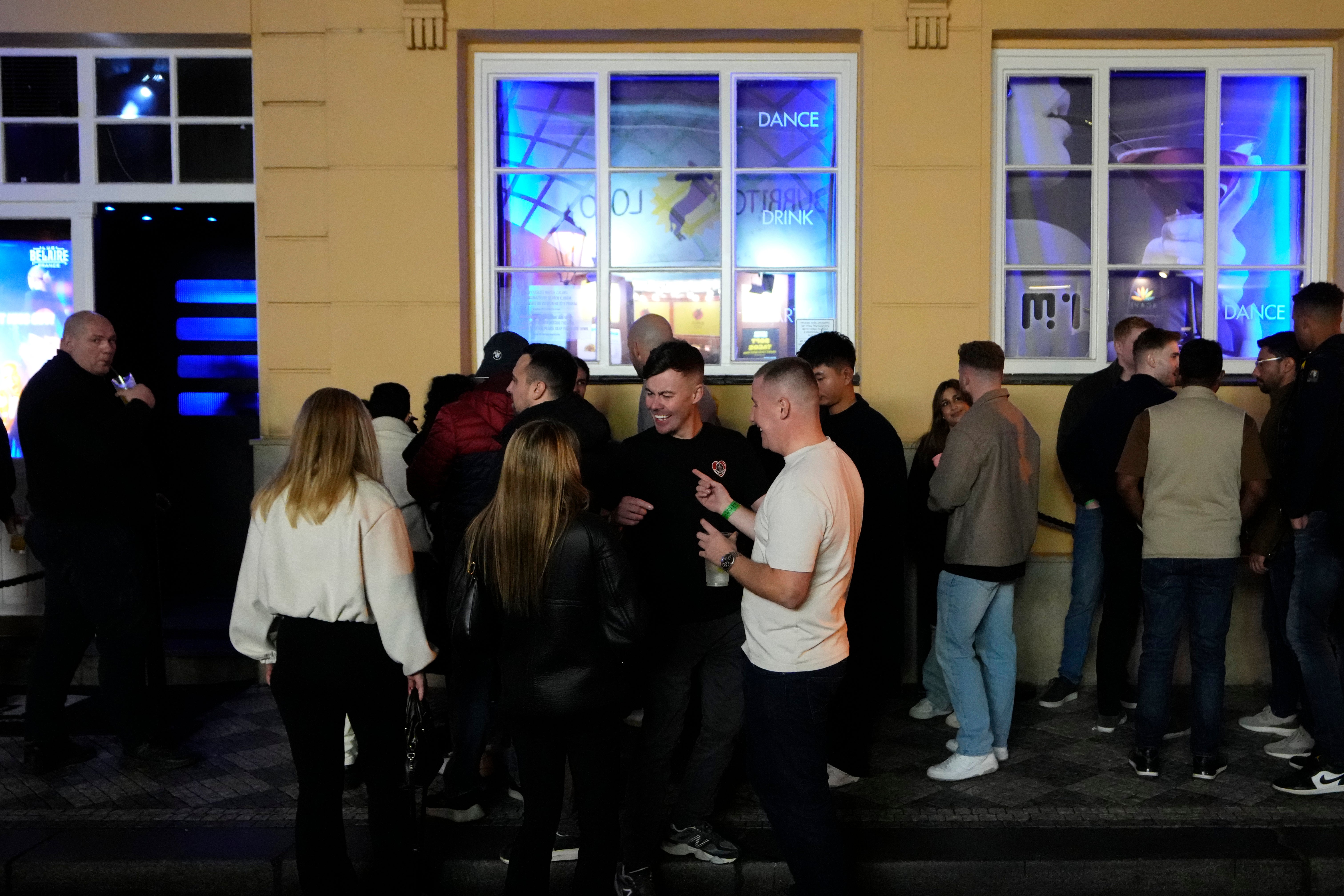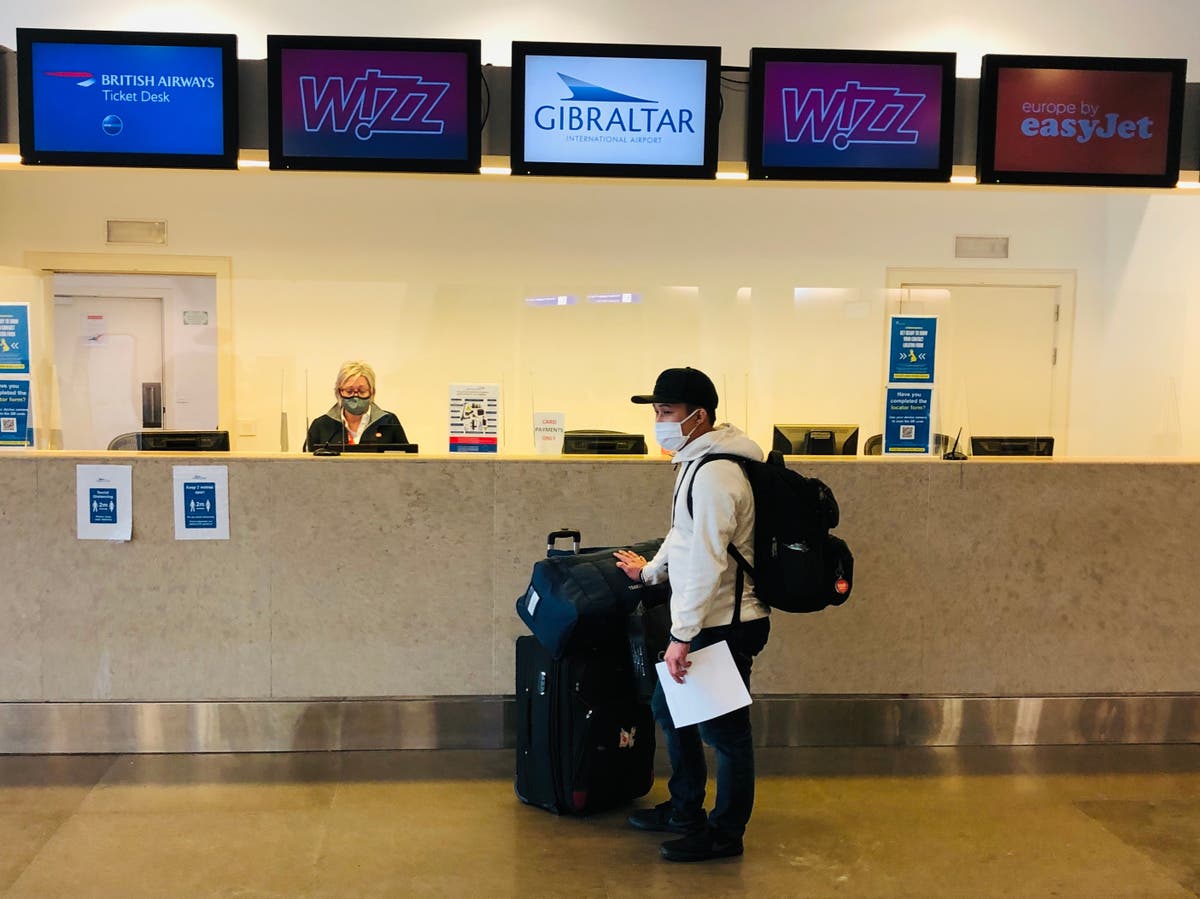Prague bans pub crawls: What you need to know about the new Czech rules
The country is the world’s largest consumer of beer per capita

Your support helps us to tell the story
This election is still a dead heat, according to most polls. In a fight with such wafer-thin margins, we need reporters on the ground talking to the people Trump and Harris are courting. Your support allows us to keep sending journalists to the story.
The Independent is trusted by 27 million Americans from across the entire political spectrum every month. Unlike many other quality news outlets, we choose not to lock you out of our reporting and analysis with paywalls. But quality journalism must still be paid for.
Help us keep bring these critical stories to light. Your support makes all the difference.
Prague, famous for stag dos and weekend breaks, is banning pub crawls.
The Czech capital has approved a ban on the organised nighttime sprees after complaints from residents and authorities alike.
The popular outings of tourist groups moving from bar to bar in Prague’s historic district have been one of the outcomes of overtourism felt across Europe.
Attracting more than 7 million tourists last year, Prague finally opted for the ban, which will take effect in November, after trying to deal with groups of rowdy and drunk visitors for years.
It was adopted to address disturbing noise at night, garbage on the streets, and security and reputational concerns, said Adam Zabranský, a member of the city’s council who drafted the proposal that was approved this week.

Zabranský said that the aim wasn't to prevent people from having a drink in this beer-loving country, but "we don’t want to support cheap alco-tourism that’s unfortunately still quite common in Prague,” Zabranský said.
How will the pub crawl ban work?
The ban will be enforced by the city police force between 10 p.m. and 6 a.m. with organizers of the pub crawls violating it facing fines of up to 100,000 koruna ($4,300).
The radical move came after the previous efforts to deal with the issue failed, including the appointment of a night mayor in 2019, a city official whose job was to minimize the impact of nightlife on residents.
“It would be great if the owners of the establishments take their share of responsibility,” Zabranský said.
“As it is, the residents in the busy areas face the negative consequences while the bar owners participating in the pub crawls make profit and don’t care about the problems.”
The move is part of the city’s long-term strategy to promote cultural tourism and in general to attract people to stay longer than just for a weekend and come back again.
“People coming to experience culture behave differently than those who arrive to drink all weekend long,” Zabranský said.

An agency organizing the pub crawls called the ban “a populist move,” while a group of dozens of participants on Thursday apparently enjoyed their experience.
“(The pub crawl) was very nice,” Melissa Haine from Germany said. “I think it's very funny, and you get to know new people.”
The latest move by Prague doesn’t mean that visitors would face obstacles to tasting local beer in a country that is the world’s largest consumer of the drink per capita.
“Czechia has exceptional potential in beer tourism, thanks to its long history of brewing, unique breweries and the current trend of experiential and sustainable tourism,” said František Reismüller, the head of the country’s tourist authority.
“Our goal is to show that beer travel can be not only about tasting great beer, but also about learning about Czech culture, traditions and history.”

 KickT
KickT 































